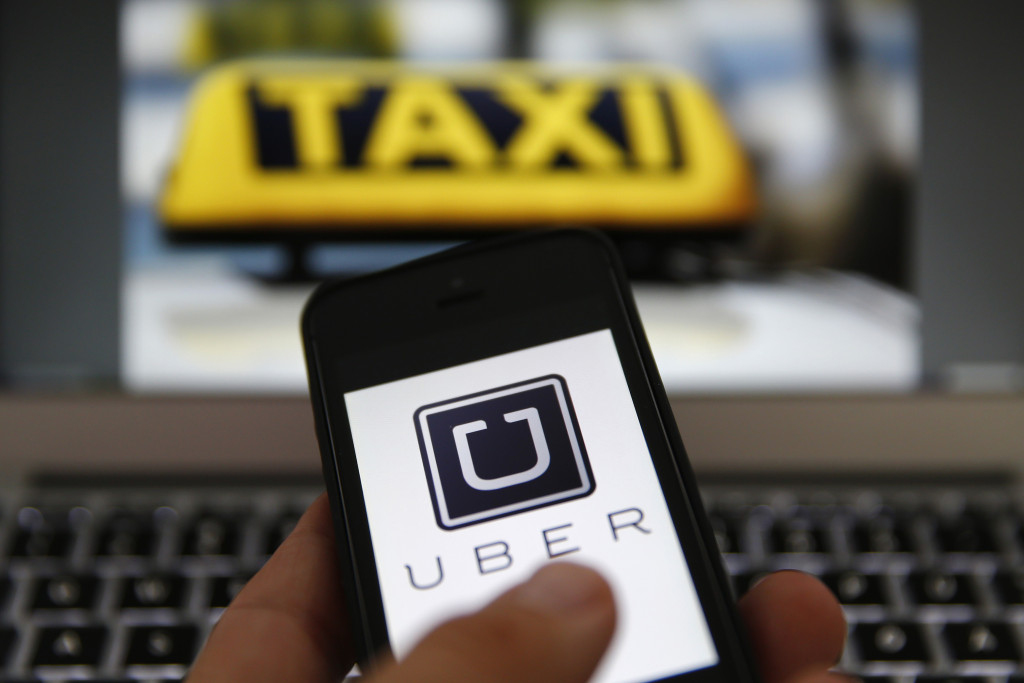The 19th century Industrial Revolution completely changed the textile industry. Scientific inventions such as stocking frames, spinning frames and power looms replaced a lot of low-skilled factory workers. On one hand this led to a tremendous increase in output. On the other hand it created a huge dissatisfaction among those workers. It blew up in strikes eventually smashing the machines that took away their jobs.
Fast forward to the 21st century Europe. Taxi drivers are the ones who are threatened by new technologies. A simple mobile app made them share the market with a whole lot of new drivers. And let’s be fair – nobody likes sharing a market with new competitors. This has led to both peaceful gatherings and violent protests throughout Europe. All calling for the same thing – make Uber go away.
Taxi drivers’ position is not a difficult one to understand. Governments have let their own imaginations run wild with regulation of taxi business. Quadruple technical inspections, special yellow markings and signs, licensing – all this often costs more than a brand new car. All in the name of consumer protection… with a price tag on it.
But it turns out that consumers do not need any special marking and licensing policies that hypothetically ensure their safety and most certainly boost prices. Otherwise they would not choose Uber over traditional taxis. And so taxi drivers have ended up complaining about the absence of order and/or abuse of law.
But is this abuse really abusive? On the supply side, lower barriers to market entry let more drivers get out on the road and make money. On the demand side, more passengers can hail a ride without overpaying for a yellow line on the side of a car and a little piece of paper in the glove compartment issued by the local government. By the end of 2015 Uber had provided 1 billion rides. If 1 billion people use these services, let me ask what should come first – consumer interests or interests of a rather narrow business group?
The answer seems rather obvious. Therefore the French example of taxi drivers flooding the streets, smashing and burning Uber drivers’ cars is not a sustainable one. What should be smashed and burned is the outdated regulatory regime which has been been overruled by a simple market test – consumers’ choice.
A similar situation is taking place not only in transportation but everywhere where new technologies are ousting incumbent market players from business. Take the hotel industry. Governmental regulations form an exhaustive list, ranging from fire safety to wall soundproofing. Seven decade-old Japanese hotel regulations list such absurdities as a minimum length of a reception desk or colours of pillowcases. Compliance with all these requirements jacks the prices up.
But what if the customer does not care if his or her pillowcase has flowers or teddy-bears on it? What if the customer prefers a cheaper option with a bed, a shower and a towel? In this case their go-to choice would definitely be Airbnb, an online platform which lets you rent out your apartment or a room to a stranger.
Regardless of how convenient this platform is, it faces similar anti-Uberesque protests as well. Airbnb has more than 60 million users, so my question is the same: should the interests of a narrow business group be put above the interests of 60 million consumers? And the answer is the same as before. It is not the competition that has to be removed. Instead, the regulation needs updating. And not by forcing the new businesses into shackles of old regulations but by setting the old businesses free of obsolete restrictions.
Business born from the new technologies does not only empower consumers by offering better access to services but also by providing new means of making a better living. Studies have shown that people in the U.S. who have used digital online platforms to work in their spare time have raised their living standards significantly. Those who have employed their labour by carrying out tasks, driving people around etc. have made extra $533 per month. This has accounted for additional 30% of their income. Those who have employed their capital by renting out the unused stuff, cars or even real estate via such platforms have made additional $314 per month, which is about 20% on top of their income.
History lesson from Luddites is a simple one. No matter if you protest technological advances they will change markets. Milk delivery men might have protested against the fridge, photo film developers should have rioted against mobile phones, and Blockbusters could have argued for banning the Internet. None of this has or would have worked because this tsunami of new business models that technology has created simply cannot be stopped by smashing cars or stocking frames. When both the demand for high quality services and the potential to make money are so high, governments have to be open to change. The only way is to create a flexible regulatory framework for all businesses rather than driving it down the bumpy road of outdated regulations in which incumbent businesses find themselves in at the moment.



